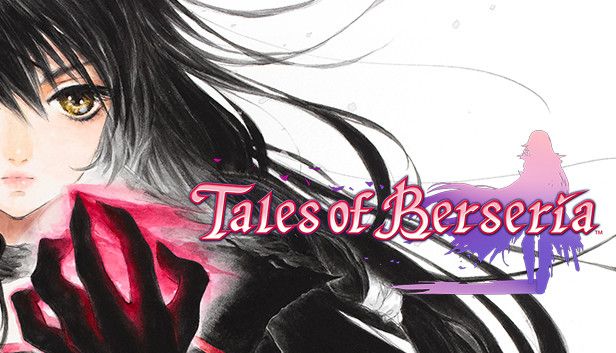Why Do Birds Fly? The Moral Philosophy of Tales of Berseria
Morality, autonomy, and the choices we all face

“Why do you think that birds fly?”
This strange sentence is not an excerpt from a book on falconry. Nor is it a question from a biology exam or a promo for the Philadelphia Eagles. It’s from the 2016 Bandai Namco RPG Tales of Berseria.

The game’s primary antagonist, Artorius Collbrande, uses this question as a means of evaluating people’s moral principles. But how does a basic question about the biology of birds tell us anything about someone’s morality?
More to the point, does this question serve as a profound meditation on the game’s central themes of order and stoicism versus chaos and emotion, or is it a piece of meaningless navel-gazing nonsense?

The “Incorrect” Answer
Velvet Crowe, the game’s protagonist, lives a sheltered but idyllic life in a remote village. She looks after her sickly younger brother Laphicet and is looked after in turn by Artorius. Artorius is Velvet’s brother-in-law, having been married to her older sister Celica who was killed seven years prior to the game by daemons. Velvet initially admires Artorius. He is an exorcist, a holy warrior trained to fight daemons. Velvet idolises him and wishes to follow in his footsteps and become an exorcist herself. A conversation between the two about this is the first instance when the game’s central question is asked.
When Velvet tells Artorius she wants to become an exorcist, like him, he responds by asking her why birds fly. The question confuses her, she is flustered and responds: “Without flying, they couldn't find food”. This answer disappoints Artorius who tells her that not everybody has what it takes to become an exorcist. He also warns her that her emotions “run too hot” and warns her that, at least in his view, this will be her downfall.
We see hints of Artorius’ ideals here in his dismissal of Velvet. He does not feel she has engaged with the question. Artorius is looking for what motivates a bird to fly. Why does a creature with wings feel compelled to use them? On another level, through this coded question, he’s trying to find out what drives her. Why does she get up every morning, as a bird leaves its nest? The response that birds fly to look for food doesn’t satisfy him. It’s a description of what birds do once they’re in the air, not why they take to the skies in the first place.
Velvet’s brother provides a different answer…
The “Correct” Answer
Velvet’s younger brother Laphicet is dying. He is terminally ill and knows he won’t live beyond his upcoming 12th birthday. Artorius, meanwhile, has devised a method of protecting the world from daemons but it requires someone, with a heart free of malevolence, to sacrifice their life. When Laphicet discovers this, he volunteers to be the sacrifice. Artorius is conflicted, so he asks the child why birds fly. Laphicet provides him with the only answer which he deems satisfactory during the entire course of the game: “I think that birds fly because they must. Why else would they have wings if not to embrace the sky? I have wings too, weak as they are. That's why I must fly! Now!"
This answer persuades Artorius, who agrees to sacrifice the child. Here we see the game’s antagonist’s view on what it means to live a moral life.
Birds fly because they must. It is their obligation to use the wings they were born with. People, similarly, must be driven by duty. Laphicet must sacrifice himself and Artorius must murder a child. However horrible these actions might be, it’s their duty to undertake them to make the world a better place. The ends justify the means.
Artorius’ ideals come into further focus when the true nature of his plan to rid the world of daemons is revealed. Daemons in the world of Tales of Berseria are born from negative human emotions. When people become overwhelmed by feelings of anger, sadness or rage, they produce an energy known as “malevolence”. This malevolence causes them to transform into daemons. Artorius’ plan to rid the world of daemons is to purge humanity of their emotions, cutting daemons off at their source. This would ensure that everyone in the world is motivated only by cold utilitarian logic like Artorius himself.
Velvet’s life is upturned when she sees Artorius kill her younger brother. She swears vengeance on him. She is motivated by grief and rage, in contrast to the emotionally detached sense of obligation which drives him.
This sets up an immediately interesting dynamic: there is an intimate and personal connection between the game’s villain and its protagonist. But if Artorius represents cold emotionless detachment, what does Velvet stand for?

An Alternative Answer
During the game’s finale, Velvet provides Artoirus with an alternative response to his question: “Birds fly because they want to fly. They don’t need a reason. Even if their wings may snap and doom them to die. They don’t fly for anyone’s benefit. They don’t fly because they were ordered to. Birds fly because they want to fly and for no other reason!”
This final reply is the ultimate rebuttal to Artorius’ ideals. People are not driven by duty. In fact, they don’t have to be driven by anything. They don’t have to conform to the standards which anyone else tries to impose upon them. They just have to live life authentically according to their own emotions.
Naturally, Artorius rejects this response: “That sort of foolishness is what creates the daemons, and plunges the world into tragedy and despair.” However, unlike in the prologue, Velvet no longer cares about receiving his approval.
Velvet rejects Artorius’ utilitarian philosophy, but deliberately does not replace it with a moral framework of her own. She’s not advocating that people need to be virtuous or wise or humble. She’s arguing that people simply need to be.
Ultimately, Tales of Berseria does not seek to answer its central question. “Why do birds fly?” Who cares, do what you want. It’s not about providing the “correct” response. It’s having the autonomy to choose your own answers which matters.
Is this a powerful post-modern deconstruction of the concept of meaning, or is this all just ham-fisted overwritten nonsense? You’ll have to answer that one on your own.
